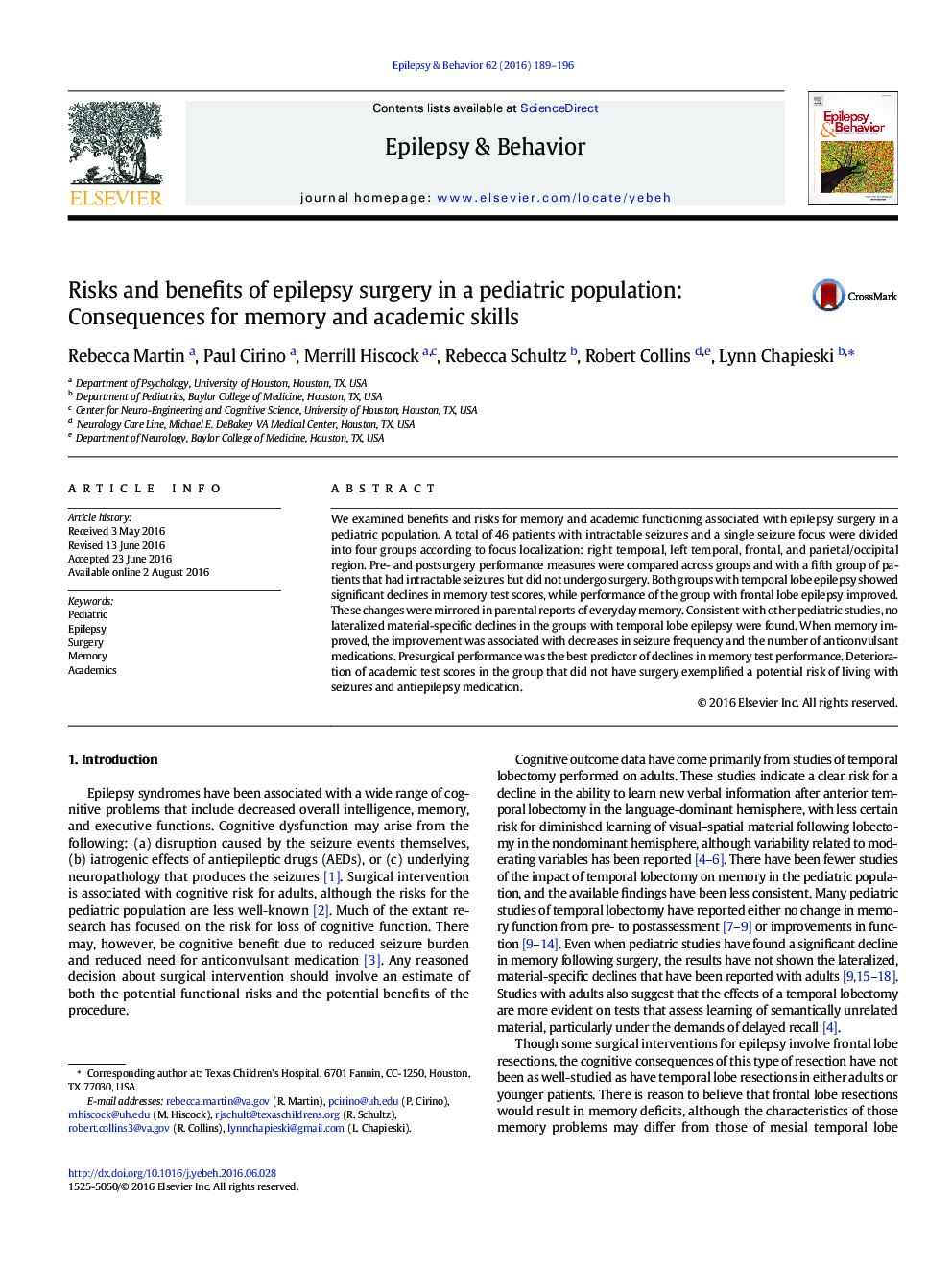| Article ID | Journal | Published Year | Pages | File Type |
|---|---|---|---|---|
| 6009789 | Epilepsy & Behavior | 2016 | 8 Pages |
â¢Temporal lobe resections were associated with a decline in memory test performance.â¢Risk associated with temporal lobe resections was independent of the side.â¢Changes in memory test scores were reflected in parent report of everyday memory.â¢Improvements in memory were associated with reduced medication and seizure frequency.â¢Declines in academic skill were observed in patients who did not have surgery.
We examined benefits and risks for memory and academic functioning associated with epilepsy surgery in a pediatric population. A total of 46 patients with intractable seizures and a single seizure focus were divided into four groups according to focus localization: right temporal, left temporal, frontal, and parietal/occipital region. Pre- and postsurgery performance measures were compared across groups and with a fifth group of patients that had intractable seizures but did not undergo surgery. Both groups with temporal lobe epilepsy showed significant declines in memory test scores, while performance of the group with frontal lobe epilepsy improved. These changes were mirrored in parental reports of everyday memory. Consistent with other pediatric studies, no lateralized material-specific declines in the groups with temporal lobe epilepsy were found. When memory improved, the improvement was associated with decreases in seizure frequency and the number of anticonvulsant medications. Presurgical performance was the best predictor of declines in memory test performance. Deterioration of academic test scores in the group that did not have surgery exemplified a potential risk of living with seizures and antiepilepsy medication.
